If you are a long-time RPG fan (and you probably are), you likely know the Nintendo 64 has only a few RPGs in its game library. If I asked you to name some RPGs on the Nintendo 64, you might tell me about a well-known classic like Paper Mario, or you might be a fan of something more obscure like Ogre Battle 64 or even Hybrid Heaven. But there’s a good chance you will also mention the first and most infamous RPG in the Nintendo 64 library: Quest 64.
Quest 64 has a reputation for being awful, and I understood why from first-hand experience when I played the game in 1999. In short, it was not a good experience, and I set the game aside for twenty years. Since then, I have rarely seen Quest 64 mentioned as anything other than a punchline. Even so, several years ago, I began to wonder if Quest 64 might be misunderstood.
On paper, the game has some great features that seemed ahead of their time. Quest 64 was released in June 1998 — that’s just nine months after Final Fantasy VII and five months before Ocarina of Time. I wondered if Quest 64 was a casualty of bad timing — a decent game with some cool ideas sandwiched between the releases of two of the greatest games of all time.
It took me a few more years to actually set up my Nintendo 64 and give Quest 64 another go, but I’m glad I did. Quest 64 is much more fun than its reputation suggests.
Quest 64 has a simple premise. You play Brian, an apprentice sorcerer. Your father has gone missing on an important quest to locate the stolen Eletale Book, a magical tome that can bring ruin to the world. It’s up to Brian to travel the world to find his father and the book. Along the way, Brian also searches for powerful elemental stones that can control the power of the Eletale Book.
Despite the simple premise, the game’s world has a lot of hidden depth. An elaborate backstory plays on the title screen that introduces multiple nations and characters. Speaking to everyone and exploring secret areas reveals the potential for deeper worldbuilding that unfortunately doesn’t really go anywhere. The developers seemed to put a lot of love into building a world that could support multiple stories, but only one story was ever published. Thankfully, there are no cliffhangers or major loose ends; it’s just a world that sometimes makes you wonder what else might be going on.
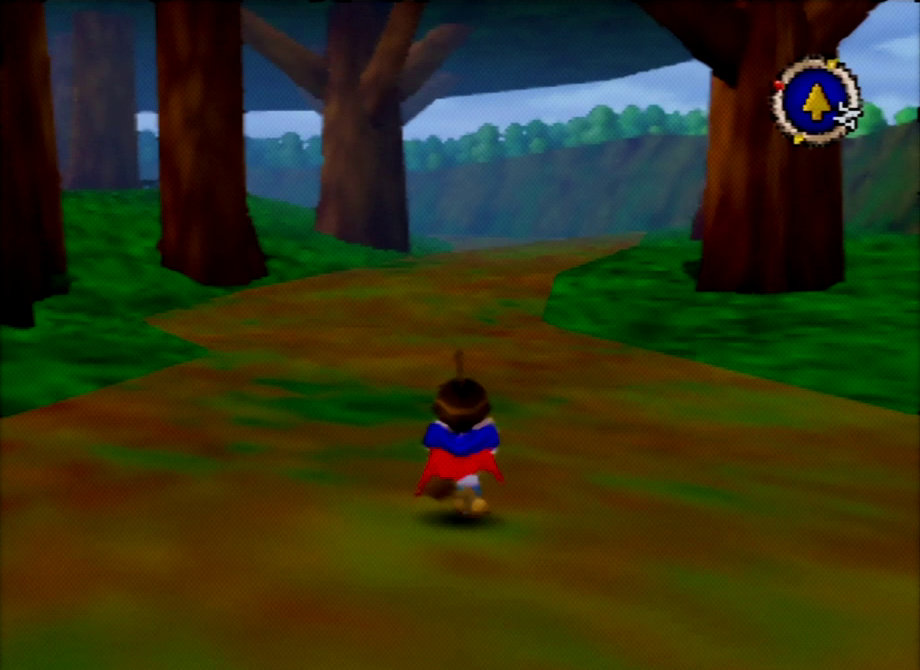
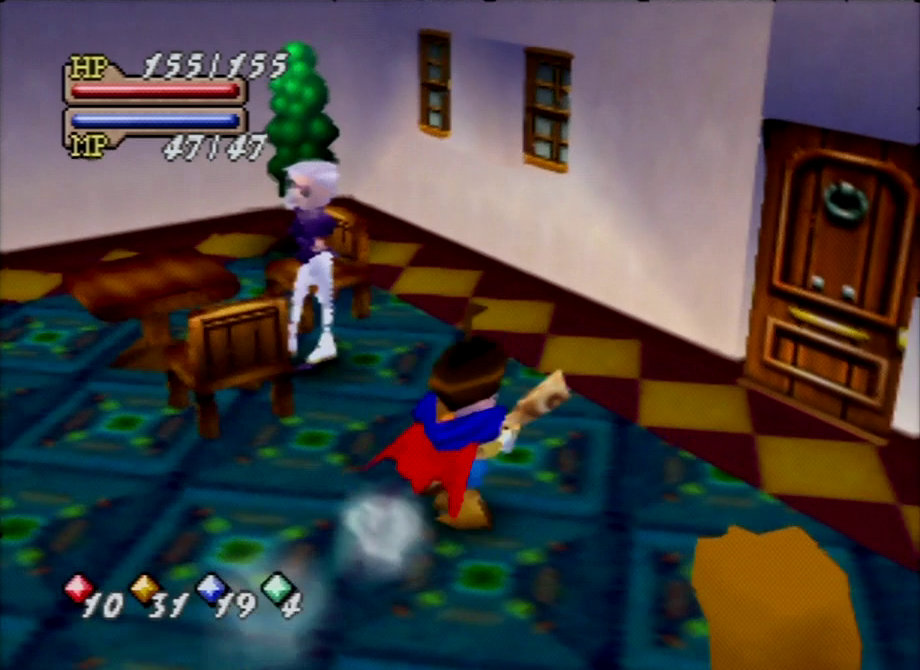
During the adventure, you travel through multiple towns, fields, forests, and caves. There’s a good variety of areas to explore, all fully realized in 3D; no pre-rendered backgrounds here. This is one of the details that stood out to me. It would be a few more years before most RPGs made the jump to full 3D, but Quest 64 took a chance on fully 3D towns, fields, and dungeons with full camera controls in 1998.
The towns are fun to explore and full of secrets. The game often rewards your curiosity with treasure chests and Spirits, which you use to upgrade your magic spells. The field and dungeon areas contain the same types of secrets and look great, but exploring them can feel more tedious because of the frequent enemy encounters.
Fighting monsters and other enemies in Quest 64 happens during random encounters, and there are a lot of them. It’s easy to get turned around and completely lost in the field and dungeon areas because of the frequent enemy encounters. Battles are turn-based, but you always have full control of Brian. The battles take place in the environment where they started, but there is a limited battle arena marked with a large white hexagon. Brian and each enemy can only move in a restricted area (marked with a smaller hexagon) inside the arena each turn.
During your turn, you can attack with your short-range staff or cast a spell from four different schools of magic: earth, fire, water, and wind. Instead of a typical turn-based system where you select an enemy target from a list, you must manually aim your spells at enemies in the fully 3D arena. Unfortunately, the game has no targeting systems or markers showing the area of effect, which is one reason some players get frustrated with the frequent battles.
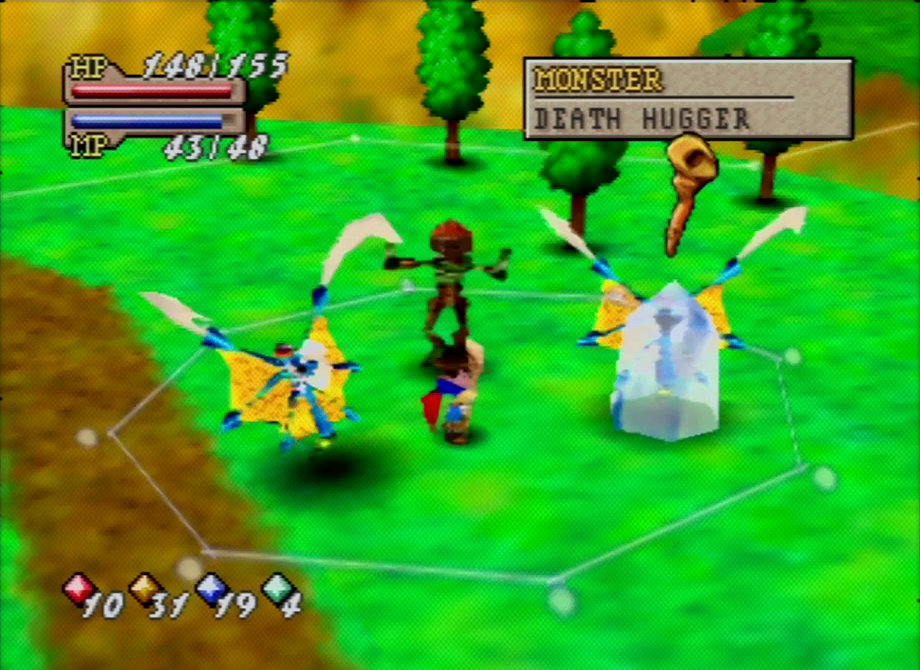
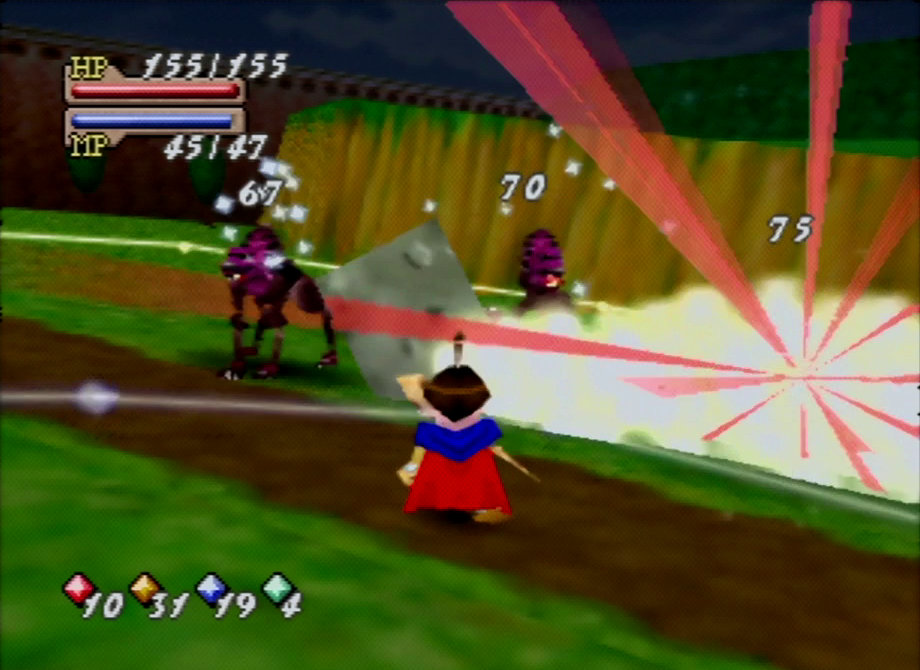
The lack of targeting or other aim assistance is the second feature where I feel Quest 64 was ahead of its time. We have modern games with area of effect attacks, but modern games nearly always include a marker showing which enemies will be hit or which area is affected. Quest 64 expects you to experiment and learn how the spells work.
Once you do, the battles instantly become more fun. Rolling Rock hits a horizontal row of enemies a few feet in front of Brian. Fire Ball targets the enemy directly in front of Brian. Ice Wall hits all the enemies in a radius around Brian. Wind Cutter locks on to the nearest enemy. There are 41 different spells, and it takes quite a bit of effort (and multiple playthroughs) to learn their mechanics. Like Brian, enemies also cast area of effect spells. With practice, you can dodge many attacks by positioning Brian correctly in the arena. I enjoyed this feature and spent a lot of time learning how to dodge enemy spells.
No matter how fun the battles can become, the constant onslaught of enemies quickly becomes tedious. Thankfully, the game includes a very generous escape option from most battles, and your MP restores automatically outside of battle. Losing battles is also forgiving; a game over sends you back to the last town, but you keep all experience gained and only lose the items you used.
As expected, several boss enemies require a greater understanding of the game mechanics and may require multiple attempts to clear. You must learn which spells they are weakest against, but I found that a few spells were so powerful that there was no reason to use many of the others.
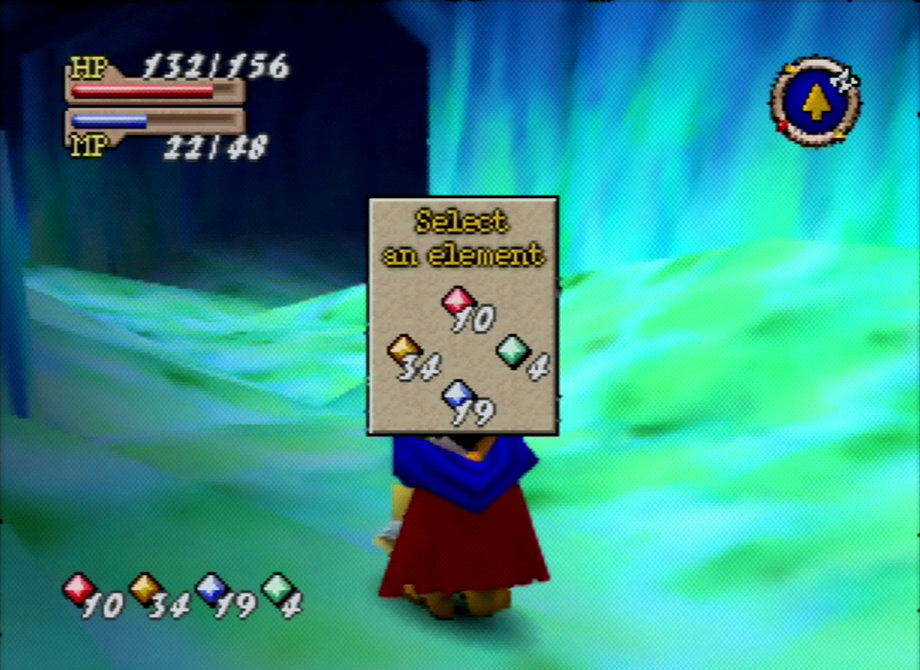
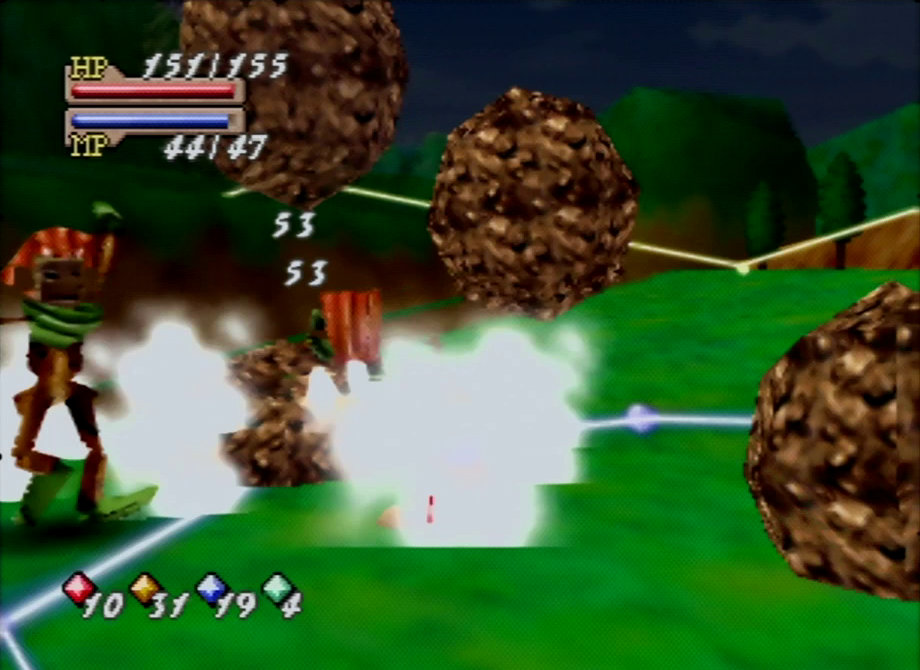
As you level up and find hidden Spirits (free level ups) in the world, you choose which elemental spells to upgrade. Unfortunately, two of the elements are much better than the others, and you quickly become underpowered if you try to upgrade more than one or two elements. Choosing the correct elements makes the difficulty trivial. Choosing the wrong elements makes the game almost unwinnable. Many RPGs want you to specialize in particular skills or magic schools, but it only works well if the options are balanced. Quest 64 is not at all balanced. Choose earth magic; you can thank me later.
Quest 64 is very rough. I could continue describing dozens of little things that annoyed me, but I want your takeaway to be something more important. I had a ton of fun playing it. Brian is a fun character design. I enjoyed experimenting with the different spells. The soundtrack is not a timeless classic, but it’s catchy and never gets old. Once I understood how the game worked, I was eager to play more daily. Quest 64 is not a forgotten masterpiece, but its reputation as a terrible game is undeserved.


